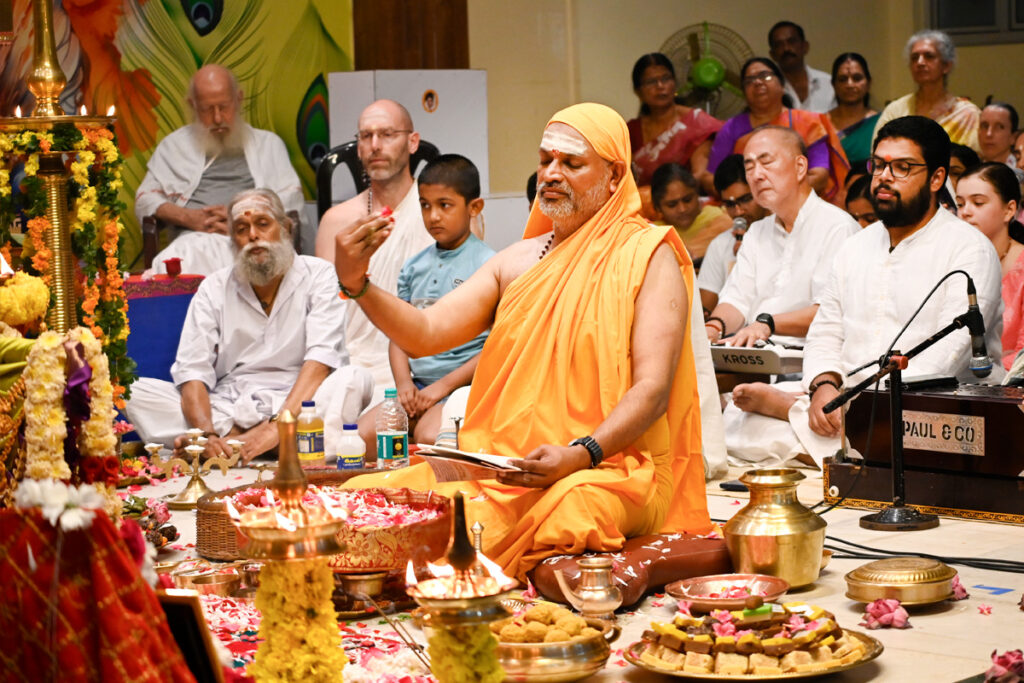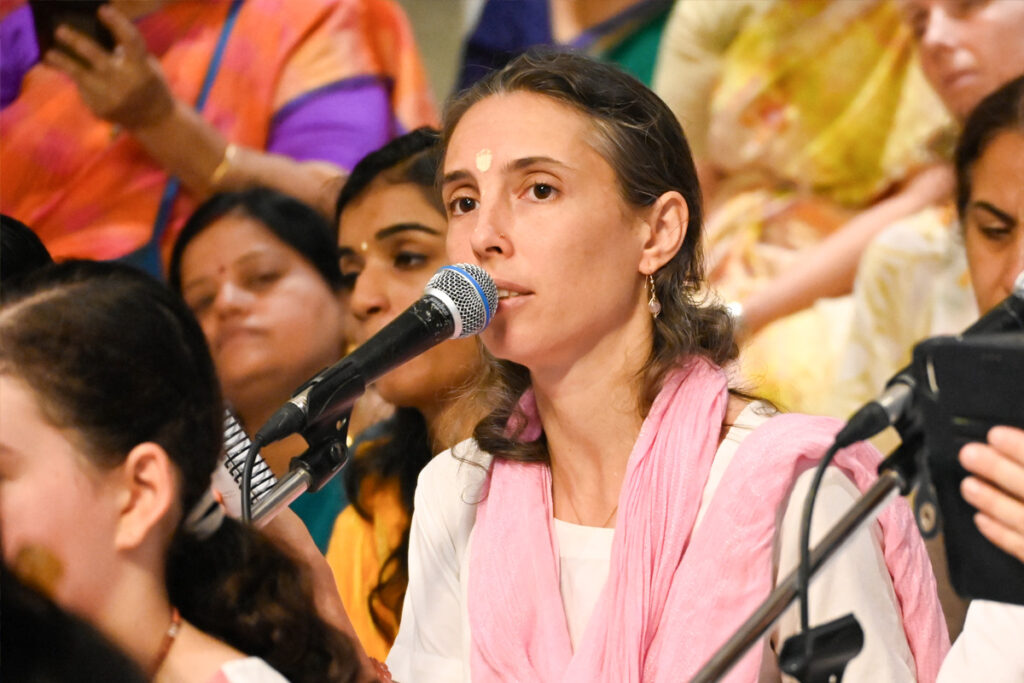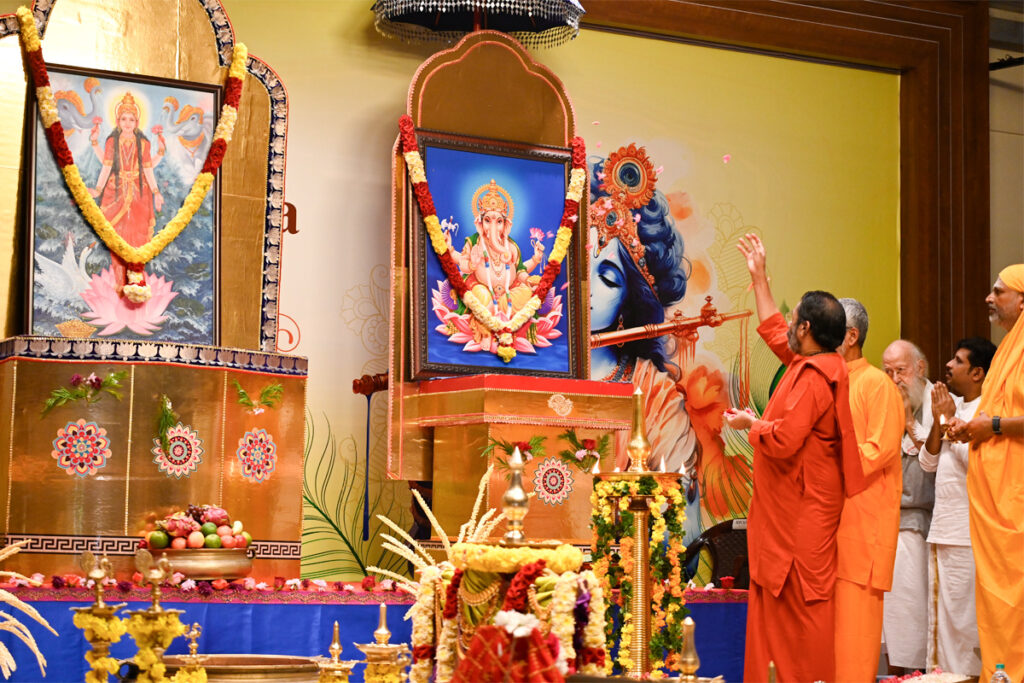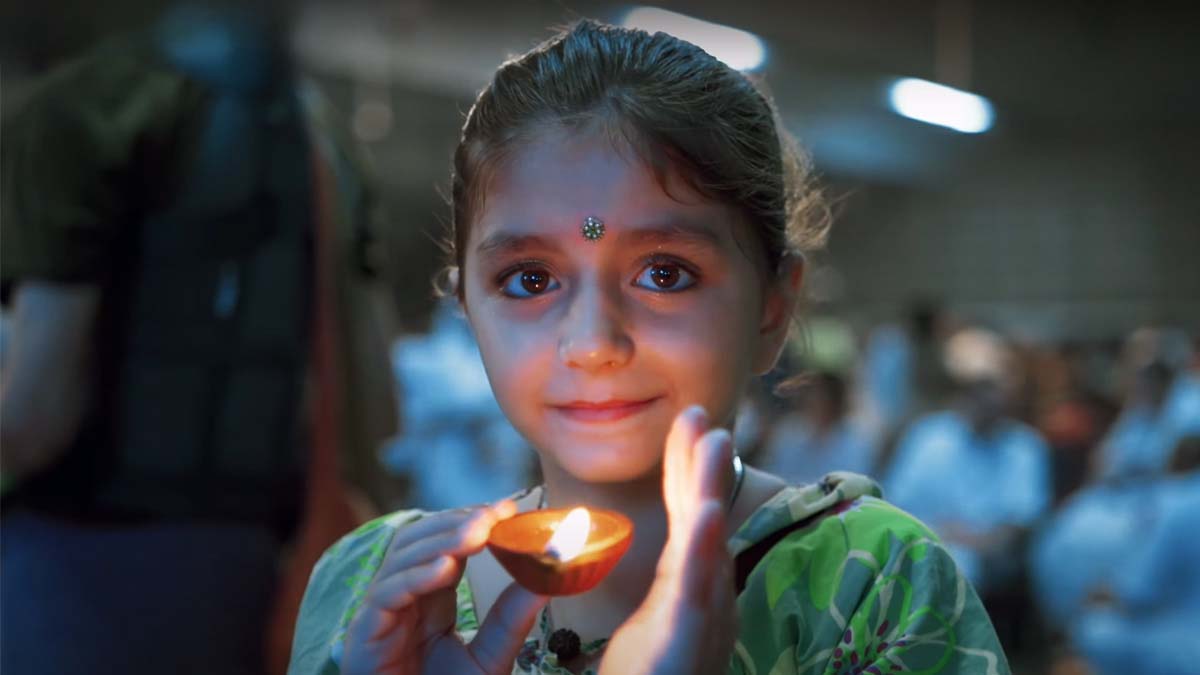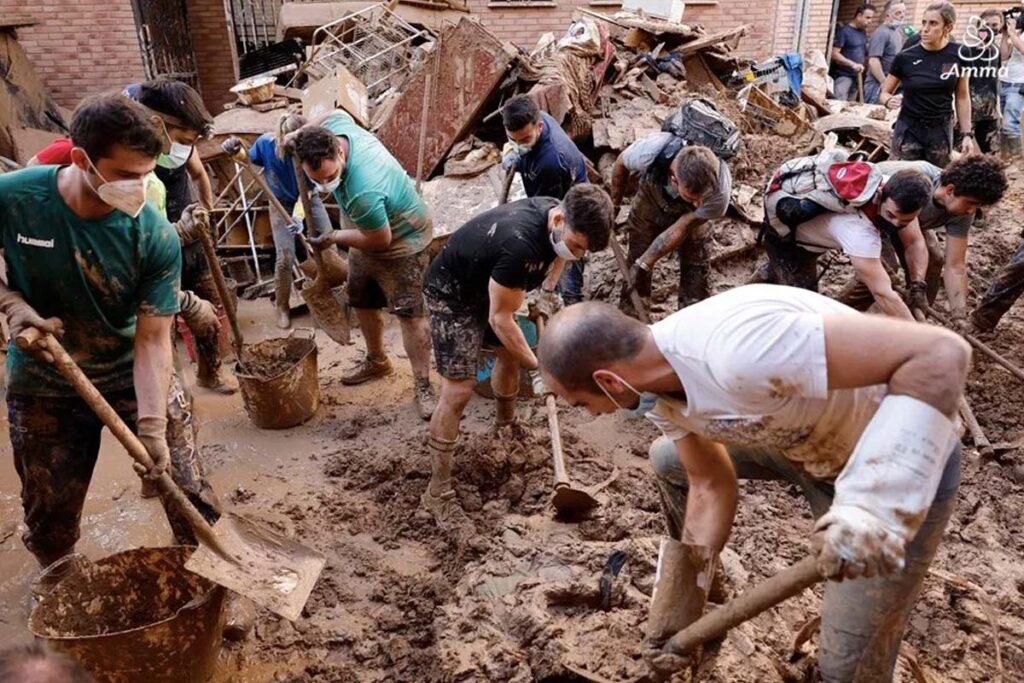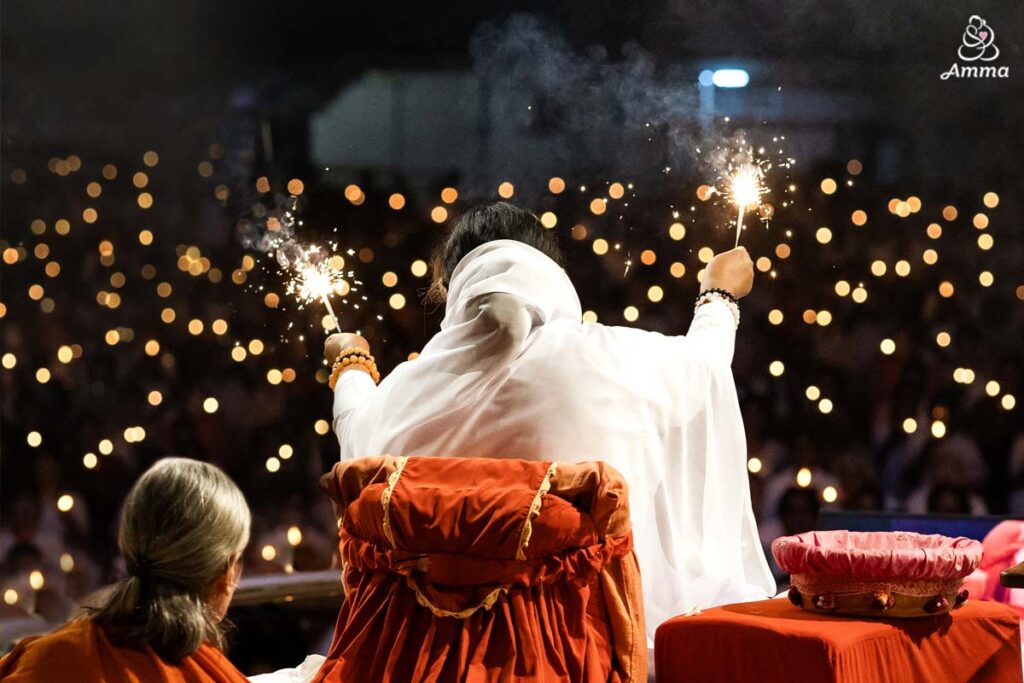Diwali—the Festival of Lights—was celebrated in Amritapuri, culminating with a beautiful surprise. Hundreds of clay lamps filled with oil and wicks were rapidly passed throughout the main hall during the evening program’s last bhajan. As each one was lit, the flame was then forwarded to the next person.
By the time arati began, thousands of hands were circling lamps together in devotion and gratitude to Amma as both a spiritual leader and a global humanitarian. After prayers for the happiness of all, sparklers were given to Amma, which she joyfully circled back in a shower of love and grace.
“It is you who are the light,” said Amma. “May that divine light awaken within each and every one of you. Once that inner light illumines, even the hearing-impaired can hear, even the vision-impaired can see. That is the greatness of inner light.”
Diwali is India’s most celebrated festival and signifies the victory of light over darkness, good over evil, and knowledge over ignorance. Originally a Hindu tradition that began before recorded history, it is likely a fusion of ancient harvest festivals. It is observed in different ways in different regions and was also brought into other faiths, including Sikhism, Jainism, and Buddhism.
Amma often shares how honouring this divine light that is at the heart of all of creation is a unifying power. The true essence of Diwali is in recognising and embracing that radiance within oneself.
“Diwali is a conglomeration of lamps, which signify the light that is of a singular nature and undivided. This represents the Divine, which is synonymous with love, knowledge, and speech, as well as beauty,” Amma has previously explained.
“This invokes the divine light that resides within us. Once this light is awakened, it enables us to perceive love, light, and beauty within all things. We then become conduits of this divine light, spreading it throughout our lives and into the lives of others.”
By tradition, Swami Turiyamritananda Puri, one of Amma’s most senior disciples, and Br Viviktāmṛta Chaitanya, Amritapuri’s head pujari, performed Vedic rites. In an expression of devotion and reverence, international ashramites led bhajans. It truly was a day that honoured Amma’s wish for unity in diversity.
